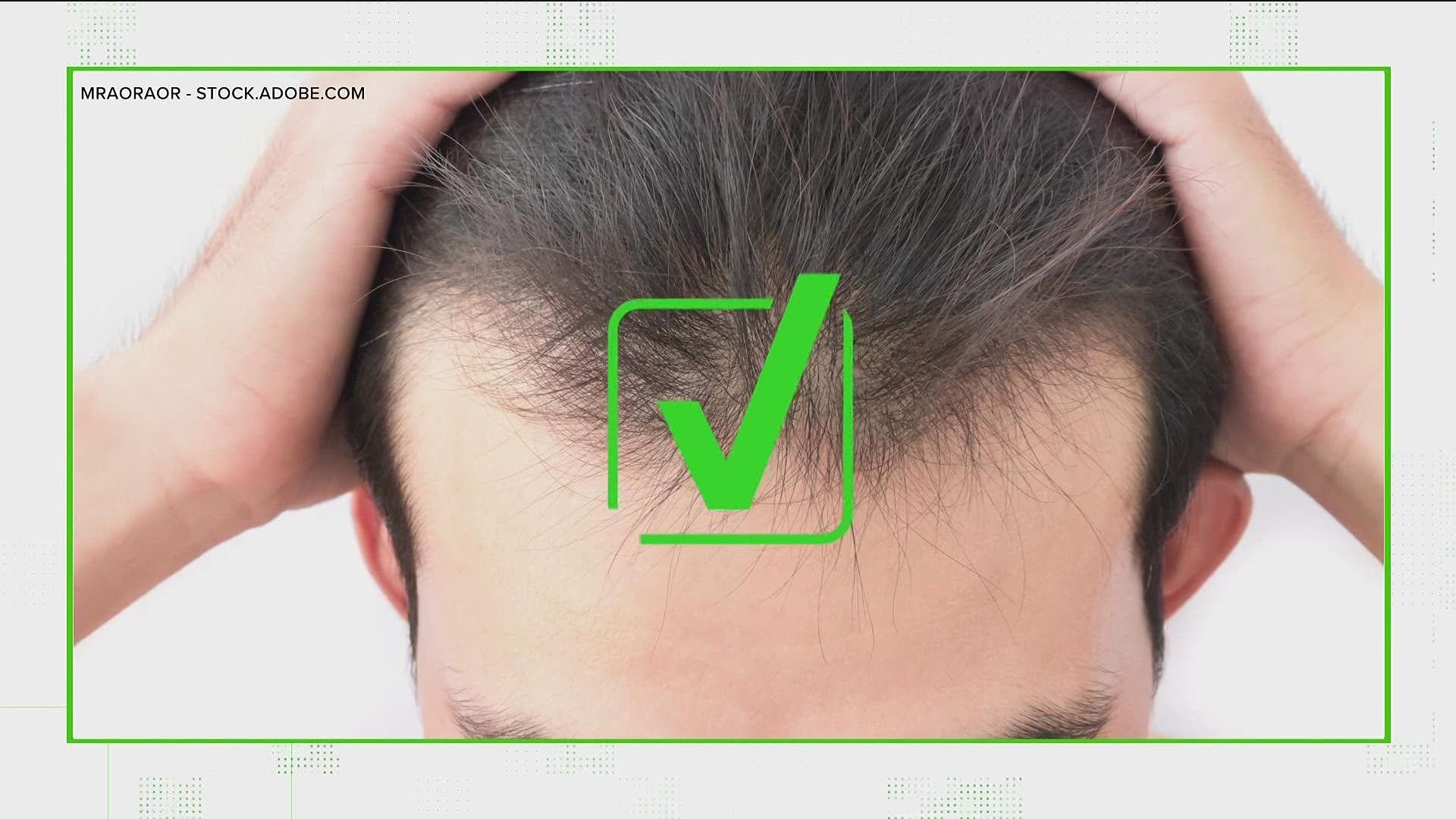ATLANTA — There's no denying that hair loss can be upsetting. But is it linked to COVID-19? Viewer Sherrie reached out to the 11Alive Verify team for answers.
THE QUESTION
"Is it true that your hair can fall out after you recover from COVID-19? Is that one of the side effects?"
THE SOURCES
The American Academy of Dermatology and Dr. Jamie MacKelfresh, an associate professor of dermatology at Emory University.
THE ANSWER
Yes, it's true some people may notice their hair fall out after COVID-19, but experts verify this is temporary hair shedding, rather than permanent hair loss.
WHAT WE FOUND
Sherrie isn't alone wondering about hair loss following a coronavirus infection. Dr. Jamie MacKelfresh told the Verify team it's one of the most common questions she's hearing from patients.
"It is actually true that some people can experience hair loss after recovering from COVID-19, or in some cases, even from this the stress of this pandemic overall," Dr. MacKelfresh explained.
According to the American Academy of Dermatology, if your hair is falling out in clumps after getting coronavirus, it could be a side effect. Experts say the condition typically happens two or three months following infection as part of the body's response to stress, whether it's physical stress like fever and the illness or emotional stress.
"If the body experiences stress," Dr. MacKelfresh said, "At times, it wants to conserve energy for important things like keeping you healthy and fighting infection. And when it does that, hair growth isn't necessarily as important. So temporarily, it may rest the hair, and...later on, people will experience some shedding."
Dr. MacKelfresh said it's important to note that this is not technically hair loss, but rather, a temporary increase in hair shedding. She said it's also not unique to COVID-19, and the condition should improve with time.
"It may seem like it takes forever but usually six to 12 months later it does get better," she said. "Time and patience really is the best advice."
However, if the condition is not improving, Dr. MacKelfresh encourages patients confer with a dermatologist to get checked out.

